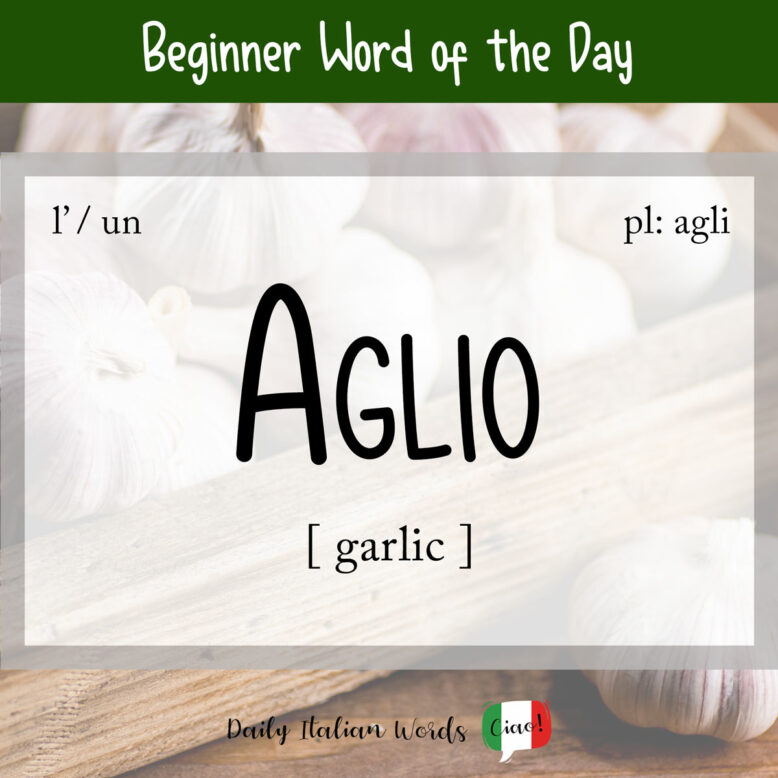One of the key ingredients in most Italian dishes is aglio, the word for garlic in Italian.

A bulb of garlic in Italian is testa d’aglio, which literally translates as a “head of garlic”, and each bulb is made up of a number of spicchi d’aglio (garlic cloves).
Pensi che io abbia messo troppo aglio nella salsa?
Do you think I put too much garlic in the sauce?

One of my all-time favourite foods is pane all’aglio (garlic bread), though I try not to eat it in company for fear of developing un alito (bad breath)! 😉
Some other delicious foods you can make with garlic include aglio al forno (roasted garlic), burro all’aglio (garlic butter) and maionese all’aglio (garlic mayonnaise). It is also a staple of famous Italian sauces such as aioli, a Mediterranean sauce made of garlic and olive oil, and agliata, a savoury sauce used to flavour meat, fish and vegetables.
Chopping up garlic can not only be a nuisance, but it also leaves a potent smell (odore) on your fingers. That’s why many people (including myself) prefer to cut it up using a schiaccia aglio (garlic press) instead of a knife.

L’aglio lascia un odore molto forte sulle mani.
Garlic leaves a very strong smell on your hands.
Close to our home, you can pick fresh wild garlic (aglio orsino) in March and April and use it to make garlic pesto (pesto all’aglio orsino)!

Heather Broster is a graduate with honours in linguistics from the University of Western Ontario. She is an aspiring polyglot, proficient in English and Italian, as well as Japanese, Welsh, and French to varying degrees of fluency. Originally from Toronto, Heather has resided in various countries, notably Italy for a period of six years. Her primary focus lies in the fields of language acquisition, education, and bilingual instruction.


